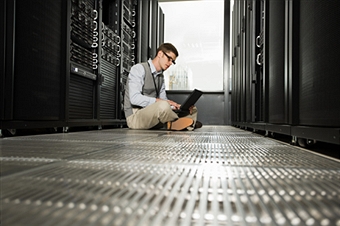Colocation Centers: What They Are And Why You Would Need One
Do you know about those companies that house tons of servers and Internet access clients rent out in centers to use for their businesses? A data center is the collection of servers and Internet access needed to run the service company from a service provider like ServerSpace which gives the facility of a colocation center, the actual place that has everything needed to run a space for that data storage. There is electricity, air conditioning, and a locker-room system for protecting the equipment needed to hook up the necessary parts to execute the services.
Information Technology (IT) departments are most likely the groups to use and interact most with the data stored in the servers. They are the telecommuters that send and recover information and applications over the servers to make sure the business is running as smoothly as possible. How are IT teams accessing these servers without needing to go visit the actual space the data is being stored at?

There is a 24-hour service that is provided by real people dedicated to IT services on the center site to troubleshoot on their side. Since the actual location of colocation enters can be in a completely different state than the business, businesses can also be reassured with the safety of their data being accessed physically. Each center has its own structure of basic equipment, but most have lockers for each server being rented, equal connectivity to power, a variety of types of Internet connections (based on the rental package, and the setup of the facility in which some places may have to route to external Internet services for faster and better connection), perfect cooling, 24-hour security and detection surveillance, and the most important thing of all, backup versions of the data and backup generators for power if electricity fails.
What kind of businesses would need a data center with all the colocation assets? Any company that sells products, services, and / or that need to back up their data off-campus would use colocation centers to accomplish this. Some centers go so far as to making their grounds as safe as fire-proofed with sprinkling systems that emit fire retardants just in case, and as contained with the minimum amount of windows as possible to prevent daylight from tampering with the controlled indoor cooling system that keeps the electronics from over-heating and crashing. Important companies that want more than just video footage as security for their server(s) will look for centers that offer hand, voice, and / or body weight scanning. Some locked servers can only be accessible if there is an employee with security clearance to scan an extra time if measures need to be taken in case of an unauthorized person posing as the client. The reverse can be true, too, where only a specific person from the client company must be the one to open the locked server space each time they want to check on their server space.
While everything sounds well and good, the system is not perfect because of human errors. Licensed files that are under the Copyright law have been hacked and downloaded from some servers. Employees on either side of the server can be illegally stealing information to sell or use elsewhere, and even with close monitoring, it’s not always possible to keep watch on every employee at all times. To try and diminish the temptation of harming the client company for selfish reasons, some companies may use the method of having websites install browser trackers to collect where and when their employees have been online. There’s always a way around the rules, but with the increasing improvements of security systems many hackers have been trapped and caught.